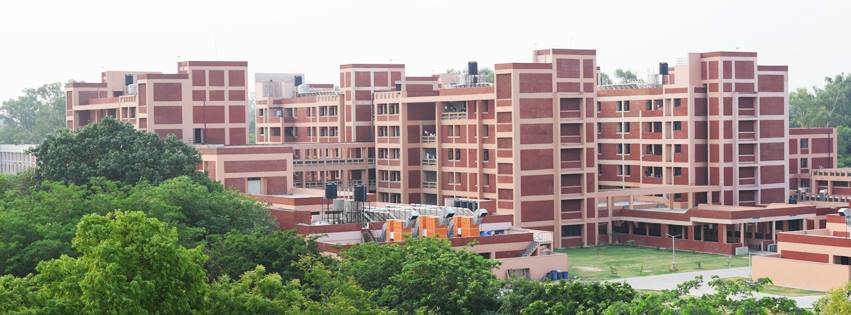Cracking the IIT Kanpur MSc Economics entrance exam is a gateway to a prestigious program that blends core economic theory with cutting-edge data analysis and real-world problem-solving skills. This blog post is designed to be your one-stop guide for conquering this competitive exam. We’ll delve into the key areas to focus on, effective strategies, and valuable resources to help you secure your seat at IIT Kanpur.
Understanding the Exam
The IIT Kanpur MSc Economics program accepts scores from either the IIT Joint Admission Test for Masters (JAM) or the Graduate Aptitude Test in Engineering (GATE). Both exams assess your knowledge in Mathematics, Statistics, and Economics. However, some nuances exist:
- IIT JAM: Focuses more on fundamental concepts and problem-solving in Mathematics and Statistics.
- GATE: Emphasizes application-oriented Mathematics and Statistics with a stronger weightage on Engineering Mathematics.
While the core syllabus overlaps, choosing the right exam depends on your academic background and strengths.
Mastering the Syllabus
Acing the IIT Kanpur MSc Economics entrance exam hinges on a thorough understanding of the following key areas:
- Mathematics: Brush up on your Calculus (differential and integral), Linear Algebra (matrices, determinants, systems of linear equations), and basic concepts like Set Theory, Probability, and Combinatorics.
- Statistics: This section covers Descriptive Statistics (measures of central tendency and dispersion), Probability Distributions (Binomial, Poisson, Normal), Hypothesis Testing, and basic Regression Analysis.
- Economics: Though not as heavily weighted, a grasp of Microeconomics (consumer theory, market structures, production theory) and Macroeconomics (national income accounting, inflation, unemployment) is beneficial.
IIT Kanpur Specifically:
While the core JAM/GATE syllabus applies, IIT Kanpur might have additional weightage on specific mathematical concepts. Refer to the official department website or previous years’ question papers for insights into their preferred areas.
Building a Strategic Approach
1. Start Early and Plan Effectively:
- Develop a study schedule: Allocate dedicated time for each section based on your strengths and weaknesses.
- Set realistic goals: Break down the syllabus into manageable chunks and set achievable targets for each week/month.
- Maintain consistency: Regular practice is key. Aim for daily or alternate-day study sessions.
2. Strengthen Your Mathematical Foundation
- Textbooks: Refer to recommended resources like Alpha Chiang’s “Fundamental Methods of Mathematical Economics” or Thomas’ Calculus for a solid foundation.
- Practice Problems: Solve problems from previous years’ JAM/GATE papers and other relevant practice materials.
- Online Resources: Explore platforms like Khan Academy or Coursera for interactive learning and concept clarification.
3. Sharpen Your Statistical Skills
- Textbooks: Utilize textbooks like John E. Freund’s “Mathematical Statistics with Applications” or online resources focused on statistical analysis.
- Data Analysis Practice: If unfamiliar with data handling, practice using software like R or Excel to get comfortable with data manipulation and basic statistical tests.
4. Don’t Neglect Economics
- Introductory Textbooks: Review core concepts from standard Microeconomics and Macroeconomics textbooks.
- Current Affairs: Stay updated on economic news and policies to gain an edge and demonstrate your understanding of real-world applications.
5. Utilize Mock Tests and Sample Papers
- Take Regular Mock Tests: Enroll in mock test series offered by coaching institutes or online platforms. Analyze your performance to identify areas for improvement.
- Practice with Sample Papers: Solve previous years’ IIT Kanpur MSc Economics entrance exam papers (if available) or JAM/GATE papers to get familiar with the exam format, question types, and time management strategies.
Additional Tips
- Focus on Part A: This section on Mathematics and Statistics carries more weightage, so prioritize your preparation here.
- Time Management is Crucial: Practice solving questions within the stipulated time frame to avoid last-minute panic during the actual exam.
- Seek Clarification: Don’t hesitate to seek help from professors, mentors, or online forums if you encounter difficulty with specific concepts.
- Maintain a Positive Attitude: Stay motivated throughout your preparation. Believe in your abilities and celebrate your progress.
Beyond IIT Kanpur: Exploring Ashoka University MA Economics
While IIT Kanpur offers a program with a strong focus on mathematical and statistical applications in Economics, Ashoka University MA Economics program might be a good fit for those seeking a more theory-driven approach. It delves into areas like Development Economics, Behavioral Economics, and Econometrics, preparing students for research-oriented pursuits or careers in economic policy analysis.
Also Read = Environmental Impact of Solar Panel Installation in Miami

